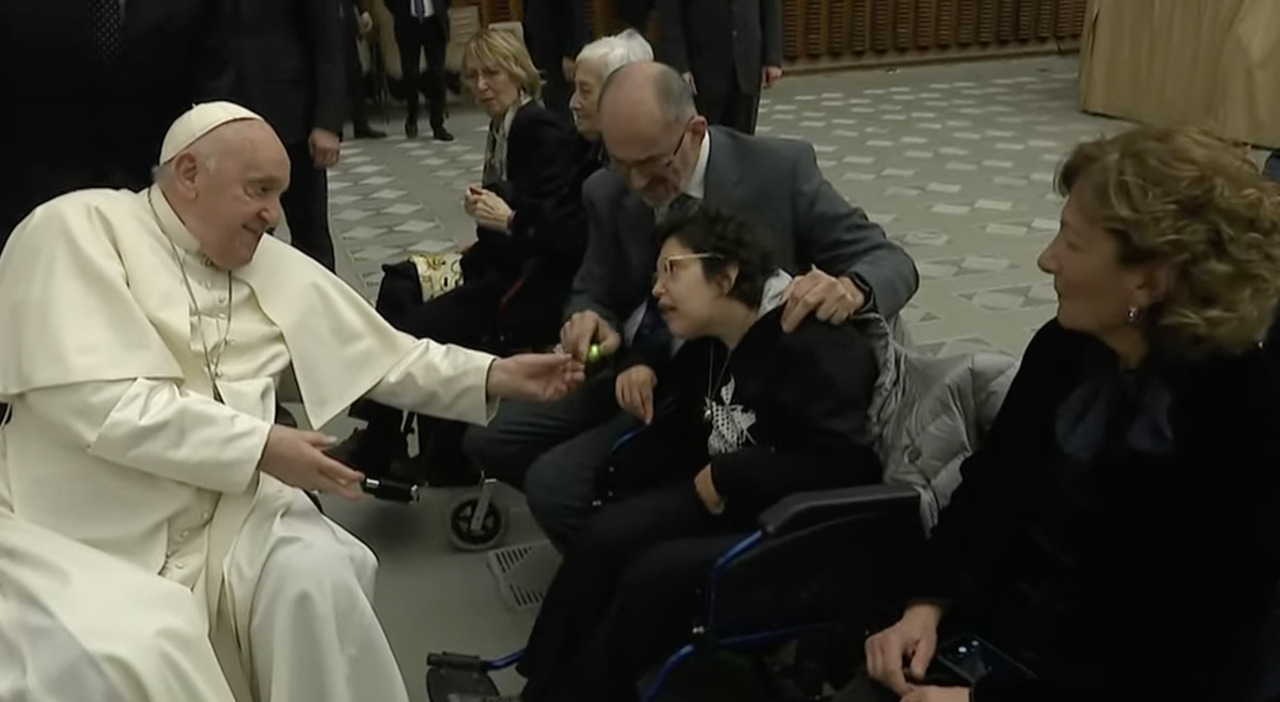Saturday 23 March 2024, 10:07 - Last updated: 11:23
"Once, popes used the gestatorial chair, but times have moved on and I use this," the Pope said in good spirits, indicating his wheelchair, having just concluded a long speech addressed to the public service of Rai, which he admonished to "create content" without "prejudices" and not to "chase ratings". He also requested to "counteract fake news and the insidious plans of those seeking to ideologically influence public opinion by lying and disintegrating the social fabric." ANNIVERSARIES Seventy years of television, a hundred years of radio is a double birthday that the Vatican, always attentive to Rai with which it has programs, collaborations, and established ties for decades, wanted to celebrate with a grand audience for employees, their families, journalists, and executives in the Paul VI Hall. Pope Francis arrived at the appointment in good spirits, gave chocolate eggs to children in the front rows, shook hands with people in the VIP section, in the front row then continued his tour, particularly stopping to spend time with about twenty sick people in wheelchairs like him. Information, the directors, and the Pope's appeal: "Facts first, so fake news can be beaten" The speech Bergoglio prepared for the occasion was full of insights. "Rai has not only witnessed the processes of change in our society: to some extent, it has also built them, and as a protagonist. Media, in fact, affect our identities, for better or for worse. And here lies the sense of the public service you perform. Therefore, I would like to reflect with you precisely on these two words - service and public - because they describe very well the foundation of your mission: communication as a gift to the community," he emphasized. In the field of information, he said, serving essentially means "seeking and promoting the truth, for example by countering the spread of fake news(...) It means, furthermore, serving the citizens' right to correct information, transmitted without prejudices, not drawing hasty conclusions but taking the necessary time to understand and to reflect and fighting cognitive pollution, because information must also be 'ecological', that is, human." Then Francis looked ahead. "In this regard, in our era rich in technology but sometimes poor in humanity, it is important to promote the search for beauty, initiate dynamics of solidarity, safeguard freedom, work so that every artistic expression helps everyone and each to elevate themselves, to reflect, to be moved, to smile and even to cry with emotion, to find in life a meaning, a perspective of good, a meaning that is not that of surrendering to the worst."
© ALL RIGHTS RESERVED
This article is automatically translated
